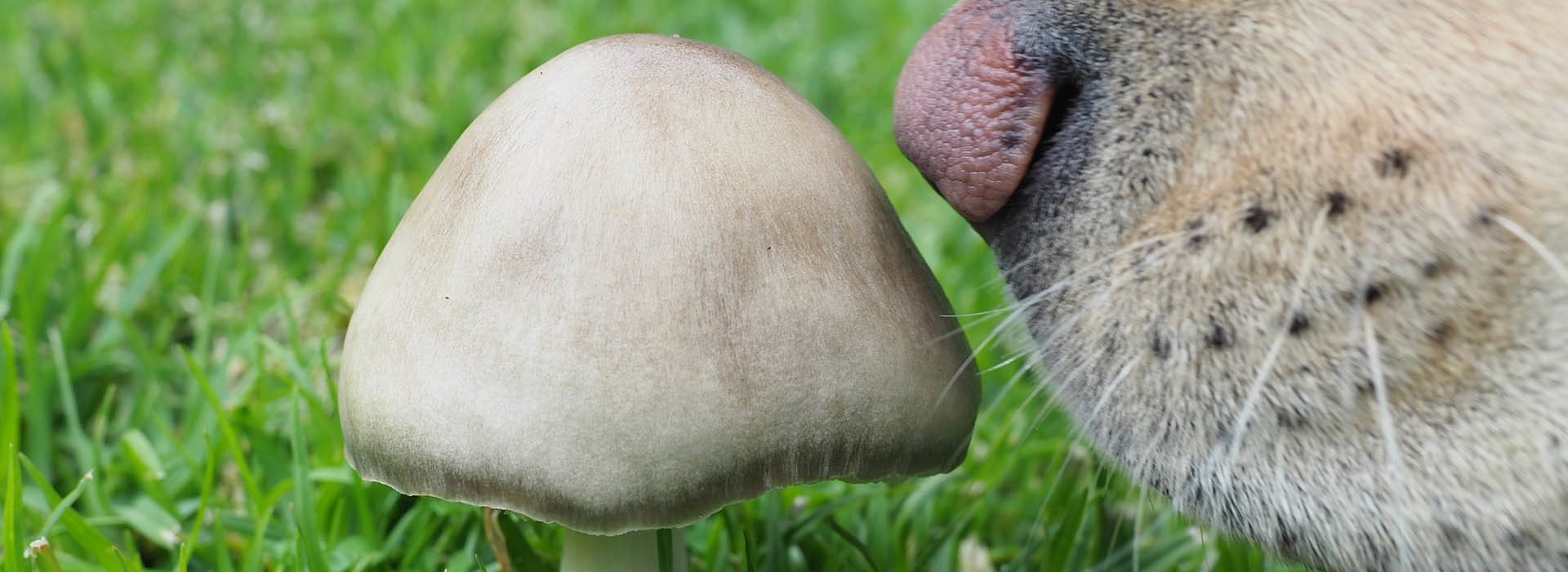
They DO cause health issues albeit in different variations and intensities depending on the species. Many harmless mushrooms have evil twins that are poisonous.

For instance Category A mushrooms are the most poisonous.
Is mushroom soil bad for dogs. Oils butter seasoning and certain vegetables such as garlic and onions can be harmful to dogs. Unless the mushroom is served plain it is generally safer. Blood tests showed traces of Amatoxin a toxin found in poisonous mushrooms.
The symptoms most frequently seen in dogs are lethargy staggering panting. Two wild mushrooms are absolutely and completely harmful for dogs. They DO cause health issues albeit in different variations and intensities depending on the species.
Some varieties of mushroom are more poisonous for dogs than others and the effects of consumption can range from gastrointestinal problems to death. Just because your dog can eat certain types of store-bought washed mushrooms doesnt mean that all mushrooms are safe. In fact some mushrooms are toxic to dogs possibly contributing to liver or kidney damage.
And veterinarians and mushroom experts believe that mushroom toxicity often goes unreported and is a common cause of dog fatalities. Even one mushroom of the wrong species can kill a medium sized dog so its better to be safe than sorry. Mushrooms That Dogs Can Eat.
While some species of mushrooms are toxic to dogs many are just fine for dogs to eat. In fact mushrooms are one of the most potent immune-modulating foods you can give your dog. Poisoning from ingesting toxic mushrooms will manifest various symptoms in your dog depending on its species.
There are four categories of mushrooms toxicity that can affect different parts of the body. For instance Category A mushrooms are the most poisonous. It can destroy cells and lead to kidney and liver failure due to toxins.
Many harmless mushrooms have evil twins that are poisonous. It might be tricky even for an expert to tell the difference just by looking at it. It is best to discourage your dog from nibbling or sniffing wild mushrooms.
If you spot any in your garden remove them. This mushrooms common name says it all. The delicate white nondescript looking mushroom is the cause of most fatal mushroom poisonings in people and pets.
The mushroom is more common in Europe but is also found throughout North America where it has been introduced wherever European flora has been transplanted. The muscarinic mushroom is a noted variety that causes vomiting and diarrhea. Pets may become weak and dehydrated.
Out-patient treatment may suffice but hospitalization is often required to stop vomiting and diarrhea and restore fluid balance. These mushrooms can also cause a slow heart rate bradycardia and respiratory problems. To be safe keep your pets off the lawn until the product is absorbed by the soil eg when the product dries if its a spray-on product or after it rains if it is a pelleted product.
When appropriately applied or diluted these chemicals typically wash into the soil after rainfall resulting in low-risk to dogs. The Amanita family of mushrooms is one of the more commonly found but harmful mushrooms. This family includes the death cap and gives off a fishy odor making them tempting to dogs.
Other dangerous mushrooms include the Lepiota and Galerina families. Gicking says that the best method is simply to play it safe. Pet-Safe DIY Mushroom Killer.
When you do pluck a mushroom be sure to place it in a bag that you can tie off. This way the spores cannot travel to other areas of your yard. Pet-Safe Mushroom Killer Recipe.
Mix 1 part vinegar to 4 parts water. Use a spray bottle to apply this to the surface of mushrooms. Mushroom compost pH levels are around 66 putting it in the neutral range.
Blended into soil mushroom compost provides a readily-available source of organic material which retains water and help to amend clay-like soils over time. However it shouldnt be used to replace your standard compost. In this post were going to cover mushroom toxicity in dogs to tell you which species cause problems what signs and symptoms to watch out for if your dog has eaten some of those bad mushrooms and what to do if your dog has indeed become ill as the result of ingesting mushrooms.
5 Common Treatments for Mushroom Poisoning In Dogs. Generally the treatment for mushroom poisoning in dogs targets the core symptoms of the condition. Treatment method is also dependent on the underlying cause of toxicity as well as how long ago the dog was exposed to the mushrooms and the severity of the symptoms.
Mushrooms are a healthy food that are full of nutrients. Just like for humans eating mushrooms can potentially have health benefits for dogs. Theyre full of vitamin D various B vitamins riboflavin manganese antioxidants dietary fiber potassium phosphorus and other beneficial substances.
In general fresh or dried mushrooms contain more beneficial nutrients than canned or preserved mushrooms. Dogs do not create the enzymes needed to break down the fiber and some of the sugars found in mushrooms so be sure to cook any fresh mushrooms. According to medicine folk in Mexico this mushroom is used to treat ringworm.
There has also been research published about this mushroom as its been used to treat hemangiosarcoma in animals which is a cancer often seen associated with vaccination.